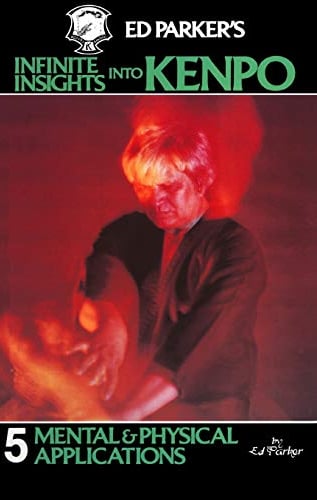WE HAVE MOVED! 2160 HUNTINGTON DR. UNIT C DUARTE CA
Edmund K Parker and his art
Edmund K Parker, often hailed as one of the most influential figures in American martial arts, has left an indelible mark on the field through his expertise, philosophy, and innovations.
10/29/20232 min read


Edmund K Parker: Revolutionizing Martial Arts in America
Introduction:
Edmund K Parker, often hailed as one of the most influential figures in American martial arts, has left an indelible mark on the field through his expertise, philosophy, and innovations. Known for his mastery of various disciplines, including traditional karate and Chinese martial arts, Parker played a pivotal role in popularizing martial arts in the United States. This blog discusses the life, contributions, and enduring legacy of Edmund K Parker in bringing martial arts to the forefront of American consciousness.
Early Life and Training:
Born in Hawaii in 1931, Edmund Kealoha Parker began his martial arts journey at a young age. Under the tutelage of William Chow, a master of the Kempo style, Parker honed his skills and absorbed the rich cultural traditions associated with martial arts. This early training laid the foundation for his later groundbreaking contributions to the field.
Founding of American Kenpo Karate:
Ed Parker's most significant contribution to martial arts in America was the development and promotion of American Kenpo Karate. Distilling his extensive knowledge of different martial arts styles, including Chinese boxing, Okinawan karate, and Western boxing, into a cohesive system, Parker created a practical and efficient martial arts discipline suitable for self-defense in modern times.
The Concept of "Infinite Insights":
As an educator, Parker strove to educate students beyond mere technique. He believed that true mastery of martial arts required a deep understanding of the underlying principles and philosophy. Parker shared his wisdom through a series of books called "Infinite Insights into Kenpo," which explored topics such as strategy, timing, and personal growth. This unique approach attracted many students and helped popularize martial arts as a comprehensive system for personal empowerment.
Innovation in Teaching Methods:
Parker's impact extended beyond his own physical practice. He introduced innovative teaching methods that emphasized practicality, adaptability, and accelerated learning. His approach incorporated principles from sports psychology, human kinetics, and modern instructional techniques. By implementing these methods, Parker became one of the early pioneers in martial arts education, revolutionizing the way it was taught in America.
The Creation of Martial Arts Tournaments:
Recognizing the need for a platform to showcase martial arts skills and promote their growth, Parker organized the first International Karate Championships in 1964. This groundbreaking event marked a turning point in American martial arts history, paving the way for future competitions and the eventual establishment of martial arts as a respected sport.
Legacy and Impact:
Edmund K Parker's contributions have had a lasting impact on martial arts in America. His dedication to inclusivity, innovation, and the transmission of knowledge laid the groundwork for the proliferation and widespread popularity of martial arts in the United States. Today, countless dojos around the country teach American Kenpo Karate and continue to pass on Parker's teachings to new generations of martial artists.
Conclusion:
Edmund K Parker's tireless efforts to elevate martial arts in America have transformed the landscape of self-defense, personal growth, and physical fitness. Through his development of American Kenpo Karate, his emphasis on understanding the underlying philosophy, and his innovative teaching methods, Parker revolutionized the way martial arts are learned and practiced. His legacy serves as a constant reminder of the transformative power of martial arts in shaping individuals and communities alike